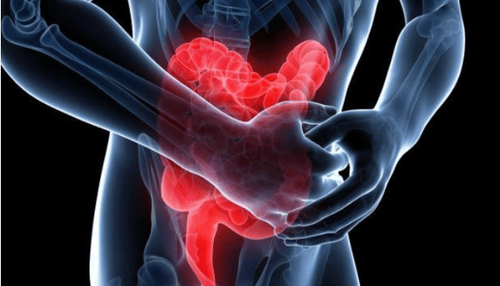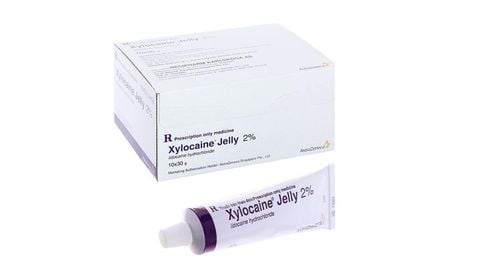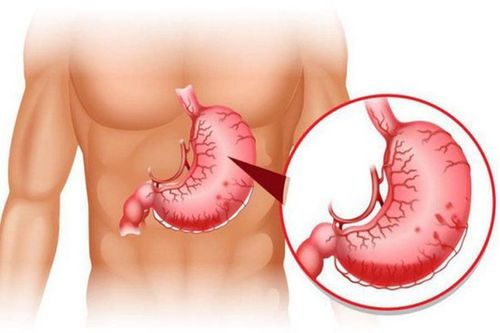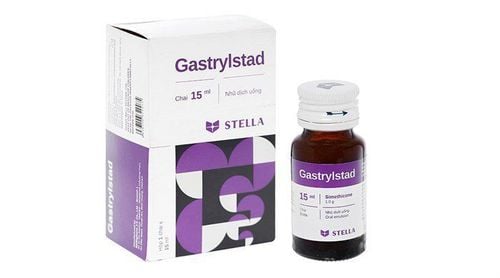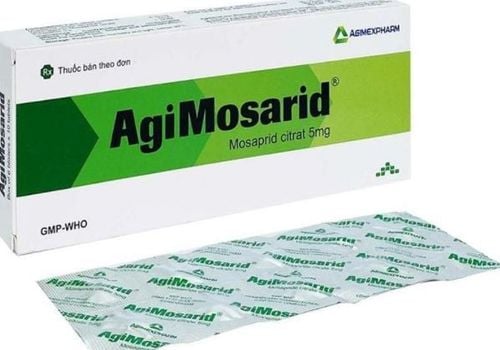This is an automatically translated article.
The article was professionally consulted by MSc Vu Van Quan - Department of General Surgery & Anesthesia - Vinmec Hai Phong International General Hospital.Gastrointestinal bleeding is a serious medical - surgical condition caused by many diseases. Gastrointestinal endoscopy is both for diagnosis and for hemostatic intervention, which should be performed early to control the disease and limit complications.
1. Diagnosis of gastrointestinal bleeding
1.1. Determine the location and extent of bleeding Patients with GI bleeding, especially multiple GI bleeding, need to be hospitalized both medically and surgically. The earlier it is diagnosed, examined and treated, the more effective it is in preventing dangerous and potentially life-threatening complications. The doctor will examine:
Location of bleeding: Through medical examination, anorectal examination, abdominal examination or procedure to place a gastric lavage tube, ... may initially suggest gastrointestinal bleeding high or low to have the orientation for the exploration and treatment later.
Bleeding level: Based on clinical examination, the results of the paraclinical investigations that divide the levels of gastrointestinal bleeding: Severe, moderate, mild. Each level has different treatment attitudes.
1.2. Determining the source of bleeding Endoscopy is the most common method for finding the source of gastrointestinal bleeding. The endoscope is a flexible tube with a small camera on the end that is used to insert into the organs of the digestive tract. Through the images transmitted from the camera to the monitor, the doctor can observe and check a number of parts as follows:
Gastroscopy : Most common; Colonoscopy: Passed through the rectum to view the large intestine; Small bowel endoscopy: Performed by pusher tube, double balloon or capsule; If bleeding cannot be detected by endoscopy, it is called occult bleeding. At this point, the doctor can do another endoscopy or find the cause of the occult bleeding by applying other procedures, such as:
Contrast X-ray ; Scanners with radioactive isotopes injected into a vein; Computed tomography of blood vessels through intravenous contrast injection; Surgical intervention laparotomy exploratory, gastrointestinal examination.

Chụp cắt lớp vi tính để phát hiện xuất huyết ẩn
2. How to cure repeated gastrointestinal bleeding?
2.1. Initial treatment Depending on the patient's gastrointestinal bleeding on admission, the medical staff will have the following initial treatment:
Infusion: The first thing to do to receive the patient is to order intravenous lines for fluids; Blood transfusion: Apply in cases where the patient has lost a large amount of blood; Emergency resuscitation: Before a patient with gastrointestinal bleeding needs intensive resuscitation. It is best to return and maintain hemodynamics at a stable level before conducting investigations and hemostatic interventions. 2.2. Emergency treatment The main treatment methods commonly used include:
Endoscopy: The doctor inserts instruments through the endoscope to stop gastrointestinal bleeding; or using a thermal probe, electrocautery, laser and injection clamping the damaged blood vessels with a rubber ring or clip.
Angiography and injection of drugs into the blood vessels: In addition, if endoscopy fails, angiography will be indicated to control some forms of bleeding. Injecting drugs or blood-clotting agents into the blood vessels to aid in blood clotting in the bleeding area.
Surgery: Today, with a deep understanding of peptic ulcer disease, only surgical treatment in gastrointestinal bleeding due to peptic ulcer when endoscopic hemostasis fails. The goal of emergency surgery today is not to cure the ulcer completely, but only to stop the bleeding.
Indications for emergency surgery:
- The first laparoscopic treatment failed;
- Recurrence bleeding after the second failed endoscopic treatment;
- Risk of perforation;
- Where there is no endoscopic hemostasis, medical treatment fails.
2.3. Prophylaxis of recurrence Some of the following bleeding disorders need to be co-treated to prevent recurrent GI bleeding, namely:
Infection with Helicobacter pylori and others; Gastroesophageal reflux disease (GERD); Peptic ulcer disease; Hemorrhoids ; Inflammatory bowel diseases.
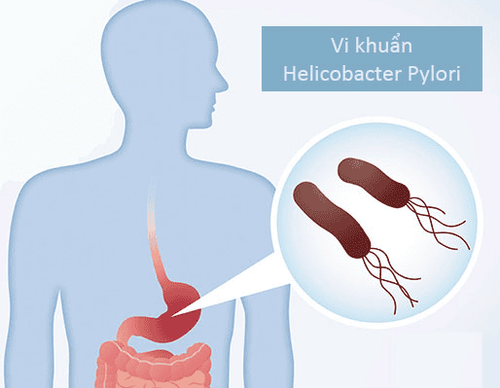
Điều trị vi khuẩn Helicobacter pylori (Hp) để ngăn ngừa chảy máu đường tiêu hóa tái phát
3. Gastrectomy for gastrointestinal bleeding at Vinmec Hai Phong
At the Department of Gastroenterology of Vinmec Hai Phong International General Hospital, laparoscopic gastrectomy to treat gastrointestinal bleeding, combined with lymph node dissection is one of the key technical categories. Although it has just started to be deployed from July 2019, Vinmec Hai Phong's multi-digestive bleeding treatment service has been trusted and chosen by many patients.
In particular, a team of highly qualified, well-trained doctors and nurses with many years of experience in the field of gastrointestinal endoscopic surgery is always the strength of personnel at the Vinmec Hospital system. This surgery is performed by Master, Doctor Vu Van Quan. With more than 10 years of practical experience in the profession, Doctor Quan has directly conducted many successful gastrointestinal endoscopic surgeries in general and gastrectomy to treat gastrointestinal bleeding in particular.
Patients who have surgery at the Department of Surgery, Vinmec Hai Phong Hospital enjoy outstanding benefits including:
Short hospital stay, minimizing the cost of stay, reducing the risk of hospital infections. With cases of lithotripsy, inguinal hernia, customers can always go to work after 1 day of discharge from the hospital. Limit the use of antibiotics, reduce the risk of side effects, save costs, patients do not have to worry, fear when administering antibiotics and follow up after taking the drug. Recovery rate reached 90%, re-hospitalization 0%, postoperative infection 0%. The Early Post-Surgery Care Program provides comprehensive care to patients before, during and after surgery, helping to reduce hospital stay, improve treatment quality and reduce costs; reduce the rate of complications. ERAS has been shown to shorten the average length of stay from 8-10 days to 3-4 days. Insurance: Vinmec signed with many large private insurance partners. When customers are hospitalized, they are guaranteed and compensated at the hospital. Save a lot of customer's time and effort. Other advantages : Modern equipment; Service quality according to international standards; Highly qualified doctor; Patients do not need relatives to take care of them because they are cared for by a dedicated and attentive nursing doctor... To register for examination and treatment, you can contact us at the following address:
National General Hospital Vinmec Hai Phong - Vo Nguyen Giap, Le Chan District, Hai Phong City.
Hotline: 0225 7309 888
Register online HERE





